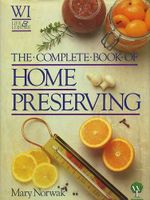Advertisement
Racking
By Mary Norwak
Published 1978
Racking is a term used to describe the drawing off of a wine from the deposit of solids and yeast cells, known as the lees, which have collected at the bottom of the jar. This racking must be done because the solids and the dead yeast cells will decompose, and may well give a musty off-flavour to the new wine. When a yeast cell becomes exhausted and dies, it sinks to the bottom of the fermentation jar, where a series of chemical reactions take place, known as autolysis, or self destruction. Enzymes gradually turn the cell back to its basic constituents which are released into the bulk of the wine. Some of these ingredients serve as food for the remaining yeast cells, but some are less desirable and can impart an off-flavour to the wine. The timing of the first racking is extremely important, and will have a lasting effect on the quality of the wine. Unfortunately it is very difficult to give fixed periods for racking as so much depends on the amount of debris that exists, and the speed of the ferment. A very rough guide for the first racking would be after 6-8 weeks; the second after 14 weeks; and then as necessary at two-monthly intervals. Racking helps to clear the wine, but it also reduces the yeast colony, which in turn is likely to slow up, or even temporarily appear to stop the ferment. It is therefore very useful to rack in conjunction with a hydrometer. In other words, only rack if the sugar content is low (or when the fermentation is nearing completion). When racking any wine that is not yet stable, ensure that it has the minimum contact with the air, otherwise there is a risk of oxidation. The tube should go deep into the receiving jar, not allowing the wine to splash. The action of racking will inevitably leave some oxygen in the wine, and it is advisable to add 1 Campden tablet per gallon/4.5 litres in order to avoid this danger.

